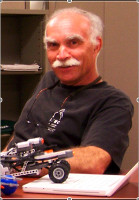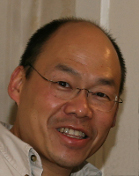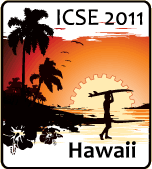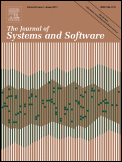| Monday 23rd May 2011 9:00 | Michael M. Gorlick. Testing the 21st Century (Chair: Antonia Bertolino) |
Short Bio |
These days Michael M. Gorlick divides his time among support of satellite software systems at The Aerospace Corporation, research into distributed infrastructure, and his doctorate, under Richard Taylor, at the University of California, Irvine. Over the past 25 years Gorlick has dabbled in software instrumentation, testing and monitoring, adaptive software architectures, visual programming, bioinformatics, wearable computing, responsive systems engineering, launch range infrastructure, sensor webs, software radio, and nanosatellite swarms. He demonstrated the first wearable ad-hoc wireless network node, was a principal designer of the DARPA picosatellites---the world record-holder for the smallest active satellites (3"x4"x1" at 255 grams) ever successfully launched and deployed, and is the the co-inventor, with Justin Erenkrantz, of Computational REST (CREST), a model for internet-scale, multiagency, ubiquitous computation. |
| Abstract | Software is not only the prime mover of the 21st century---software defines the 21st century. Economic progress, social evolution, and industrial capacity will all be determined, shaped, and driven by software. What are the defining characteristics of these future systems? What forces are at play here and how do they influence testing? We will discuss these issues from the perspective of large-scale systems engineering and investigate the challenges for testing, discovering along the way that, like it or not, the trajectory of the 21st century is in your hands. |
| Tuesday 24th May 2011 9:00 | Howell Yee : Overcoming Interoperability Challenges – Can you hear me now? (Chair: Jenny Li) |
Short Bio |
Dr. Howell S. Yee joined MIT Lincoln Laboratory in 2005. In his current position, his research involves distributed computing, interoperability, very large data set processing and natural language processing. Prior to joining the MIT Lincoln Laboratory, he has worked at Avaya, Lucent/Bell Labs, RAND Corporation, MIT and Harvard. Dr. Yee received the B.S. degree from Brown University, M.S. degree from CalTech, and M.S. and Ph.D. degrees from Cornell University. |
| Abstract | Interoperability has been a challenge and will continue to be a challenge that involves both people and technologies. The glaring faults of interoperability are most evident when tragedy strikes -- 9/11, Katrina, Haiti. What have these tragedies taught us? What have we learned from these tragedies? Are the desires for interoperability and the desires for innovation opposing forces? How can interoperability testing drive innovation? Can interoperability testing be used in-situ as a force enabler for first responders? How can interoperability testing be used holistically to address ontological and semantic system challenges? How can interoperability testing be scaled in-situ to meet the demands of a large scale emergency? How can real-time in-situ interoperability testing be coupled with dynamic mediation technologies? What will we learn from the Japanese Tsunami? When the next catastrophic event occurs what will the ensuing government report say about interoperability? |


